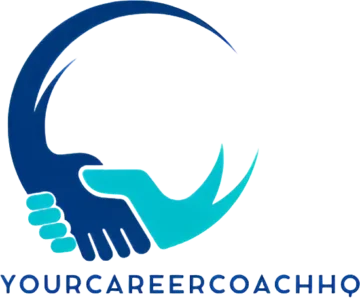Landing your dream job starts with acing the interview, but what if you’re hit with those tricky, sweat-inducing questions that seem designed to throw you off track? Don’t worry—you’re not alone. In this guide, we’ll uncover how to pass a job interview by tackling the seven most difficult questions that trip up even the most prepared candidates.
Ready to turn those challenging moments into your time to shine? Let’s dive in!
🌟 Introduction to Difficult Interview Questions
When it comes to understanding how to pass a job interview, one of the most daunting challenges candidates face is the difficult interview questions.
These questions can leave you feeling anxious and unsure of how to respond.
However, it’s essential to remember that these questions are designed to assess not only your qualifications but also your personality, thought process, and fit for the company culture.
Here, we will explore the main characteristics of these difficult questions, the reasons behind the inquiries, and the preparation techniques you can use to deal with them successfully and also very confidently.
Just by getting to know the format of your questions prior to the main event can incredibly ease your nervousness and in return, you will be able to perform at your best during the interview.
📝 The Importance of Preparation
Preparation is key when it comes to how to pass a job interview. The more familiar you are with the types of questions you might face, the better equipped you will be to answer them.
This preparation not only involves knowing the common questions but also understanding the intent behind them.
Let’s consider the case of your greatest weakness, which the interviewer prefers to hear from you normally. The idea that they are evaluating your self-awareness turns out to be the main reason.
Your development gets stronger as you prepare. You will be able to show your qualities through practical situations, which reassures your proficiency in those areas.
- Research the Company: Understand the company’s values, mission, and culture. This knowledge will help you tailor your answers to align with what they are looking for.
- Practice Common Questions: Rehearse your responses to typical interview questions, ensuring you have a clear and concise answer ready for each one.
- Seek Feedback: Conduct mock interviews with friends or mentors to gain confidence and receive constructive criticism.
👤 Question 1: Introduce Yourself
A question that is usually the first thing that an interviewer will present to you is, “Introduce yourself.”
Because this inquiry can establish the atmosphere for the whole dialogue, it is significantly vital to respond it adequately.
The difficulty is in giving a coherent, relevant response that promotes your skills without straying off the topic.
Indeed, the offered approach of structuring the answer by means of Past, Present and Future is certainly a brilliant one.
You could actually start with your previous experience, add your educational background, and the positions you had before.
The second part of your answer could be dedicated to talking about your current position and the way it corresponds with the position for which you are applying.
The last part of your answer could be about your plans for the future and that you are thinking to stay long in the company with the help of your aspirations.
Here’s a template to help you craft your answer:
“Thank you for this opportunity. In the past, I studied at [College Name], where I gained qualifications in [Subjects]. I then worked at [Company Name], where I contributed to [Achievements]. Currently, I am at [Current Company] as a [Your Role], responsible for [Key Responsibilities]. Moving forward, I plan to build a long-term career here, aiming for [Future Goals].”
🤔 Question 2: What Is Your Biggest Weakness?
A frequently mentioned and often challenging inquiry is, “What is your biggest weakness?”
Although this may come across as a trick question, you can look at it as a chance to highlight your self-awareness and dedication to bettering yourself.
What you need is to opt for a genuine weakness that you are in the process of working on.
Don’t use the hackneyed expression “I’m a perfectionist” because it can sound false. Rather, you can make your answer by providing the weakness, the effect of it on you, and what you are doing to solve it. You can use the following pattern:
“My biggest weakness is that I find it difficult to say no to people, which sometimes leads to taking on too many responsibilities. I recognize this tendency stems from my desire not to disappoint others. To address this, I am learning to assess my workload before committing to new tasks, ensuring I maintain quality in my work.”
This method is not merely a declaration of a personal obstacle but also a manifestation of the fact that you are very much a person taking the first step in the management of it, which is universally recognized as a very desired quality in any candidate.

🤔 Question 3: Why Do You Want to Work Here?
In your opinion, when it comes to the question, “What are your main reasons for wanting to work at this organization?”
you should realize that your chance to share your insights about the company and your real desire for the position is not less than the gold.
This query may seem difficult as you must necessarily stay away from the generalized content that can be used for any kind of establishment.
On the other hand, you should emphasize the features of the company that you explicitly recognize as interesting to you.
Acting demonstrably to the expectations is conditional upon your performing research about the company’s mission, values, and recent achievements.
You can emphasize the components that have special connections with your private and professional lives. Here is a plan that you can follow and customize:
“I want to work here because I admire your commitment to innovation and excellence in [specific industry or field]. I’ve learned that your company values teamwork and professional development, which aligns perfectly with my career goals. I also appreciate your recent initiatives in [mention any relevant projects or values], and I see a great opportunity to contribute my skills in [your skills or experience] to help further these efforts.”
Your answer is a proof-of-work and thus it’s an indicative of your enthusiasm for the opportunity to contribute to the team.
Keep in mind that it isn’t just about the benefits you receive; it also concerns how you are able to make a positive impact on the organization.
🔮 Question 4: Where Do You See Yourself in 5 Years?
The question, “Where do you see yourself in 5 years?” is a common device to understand your career ambitions and your promise to the firm. It can be tough, especially if you don’t have a well-planned career route.
Nevertheless, it is vital to, in your answer, articulate aspirations that reflect ambition and at the same time, fit with the company’s vision.
Responses that imply you are going to be outside or your personality is not specific are the ones that should be avoided.
Rather, it WOULD BE GREAT to talk about your progression in the company. For example, you can say:
“In 5 years, I see myself growing within this company, ideally in a role with more responsibility. I plan to take advantage of the training opportunities you offer to enhance my skills further. My goal is to be a valued team member, possibly in a leadership position, where I can contribute to mentoring new employees and driving projects that align with our mission.”
This answer demonstrates your ambition for development and loyalty to the company.
It indicates that you are adopting a long-term perspective and are enthusiastic about gaining new skills that are in sync with the priorities of the organization.
💼 Question 5: Describe a Time You Faced a Conflict
“We want to understand your problem-solving and conflict-resolving skills by asking you about one of your conflicts and their solving ?”
Such questions may appear difficult as they not only add the challenge of you mentioning a particular instance but also want you to show your skills in solving difficult problems.
The STAR method which stands for Situation, Task, Action, Result can be used to provide a comprehensive answer to this question.
For example; here is a structured format of the suggested response:
“In my previous role, I encountered a conflict with a colleague regarding the direction of a project. The situation escalated during a team meeting where our ideas clashed. I recognized the need to address this issue directly, so I arranged a one-on-one conversation with my colleague. I listened to their perspective and shared my viewpoint openly. By the end of our discussion, we found common ground and agreed on a collaborative approach that utilized both of our strengths. This not only resolved the conflict but also improved our working relationship and led to a successful project outcome.”
The fact that you use this approach indicates your being proactive and constructive in tackling conflicts. It shows your capacity to convey ideas clearly and your team spirit in finding the right solution.
🌟 Question 6: Why Should We Hire You?
Often, this question is very specific to a job seeker and it is a chance for him/her to present himself/herself in the best possible manner.
It requires to be scientific because at the same time, one must promote oneself without being aggressive.
The basic thing is to explain the advantages and achievements of oneself and to prove the benefit for the company.
Aligning with the position, demonstrating my dedication to the achievement of the company goals, and taking the initiative are the things I will emphasize in my answer.
Example Answer:
“You should hire me because I bring a unique combination of skills and experiences that align perfectly with this role. First, my background in [specific skills or experiences] has equipped me to contribute immediately. Second, I am dedicated to helping the team achieve its objectives, as demonstrated by [specific example]. Lastly, I’ve prepared a 30-60-90 day plan that outlines how I intend to make a positive impact in the initial months. I believe my proactive approach will not only benefit the team but also help me grow within the company.”
The response strongly brings out your excellent credentials, which are useful to for you to join in and help with your readiness to contribute, and at the same time, it is a good indirect way of communicating that you are proactive and thinking about the future of your work in the company.
Initiative that you take in being responsible for your work in the future and contributing your skills towards it is a good way of showing that you are proactive and can think about the future of your role in the organization.
So, the answer not only provides your excellent expectations for your work entry into the company but also serves a suitable means of demonstrating your forward-thinking about the work you have to accomplish in collaboration with the company.
Besides these important questions, the main thing to keep in mind is to prepare yourself thoroughly to learn how to successfully attend a job interview.
You need to know what are the usual questions, rehearse what you will say, and adjust accordingly your answers to match the profile of the position and the company you are applying to.
For more in-depth guidance, consider accessing our ultimate job interview preparation pack.
It includes valuable resources such as a salary negotiation script, a list of questions to ask during your interview, and body language techniques to help you create a great impression.
Click here to download your copy!
💰 Question 7: What Are Your Salary Expectations?
A very tough question that can be encountered in interviews is negotiating salary expectations.
For instance, when they hear the question “What are your salary expectations?” most people will feel worried or unsure.
This question is very important to answer because it will let you know if your expectations are in accordance with the company’s budget.
To navigate this question effectively, thorough research is essential. Before your interview, investigate the typical salary range for the role you are applying for using resources like Glassdoor.
Understanding the market rate not only empowers you but also demonstrates professionalism.
You can commence your response by mentioning a range of salaries instead of a fixed figure. This indicates your flexibility and gives room for negotiation. Here is a formatted answer you may adjust:
“Based on my research, I understand that the salary range for this position typically falls between $56,000 and $66,000. Given my skills and experience, I believe a salary of $64,000 would be appropriate, with the understanding that we can revisit this based on my performance in the role.”
The method emphasizes your determination and self-assurance while also being courteous to the employer’s financial limits. Do not forget, the aim is to locate an agreement that is beneficial to both sides!

📦 Download Our Job Interview Preparation Questions & Answers
To further enhance your interview preparation, I highly recommend downloading my Job Interview Preparation Pack that contains 100 interview questions and answers.
This invaluable resource is designed to give you an edge over other candidates.
Other resources includes:
- Salary Negotiation Script: Learn how to negotiate your salary effectively.
- Seventeen Best Questions to Ask: Make a lasting impression by asking insightful questions at the end of your interview.
- Body Language Techniques: Discover how to create a positive impression throughout your interview.
- Thirty, Sixty, and Ninety Day Plans: Show your potential employer your strategic thinking and planning skills.
- Top Twenty-Five Best Words to Say: Use impactful language to enhance your responses.
- Ready-Made CV and Resume Templates: Perfect your application materials to stand out.
- Fifty Additional Answers to Tough Interview Questions: Prepare for any question that may come your way.
This post is part of a series on excelling in job interviews. Check out the other articles in this series:
100 Interview Questions and Answers to Ace Your Job Interview
How to Answer Salary Expectations Interview Question: Best Example Answers
How to Introduce Yourself in a Job Interview
Top 10 Best Interview Tips: How to Prepare for a Job Interview
🌈 Closing Thoughts
As you prepare for your upcoming interviews, remember that mastering how to pass a job interview involves more than just rehearsing answers. It’s about understanding your value, being authentic, and effectively communicating your fit for the role.
Think over the questions we have gone through, rehearse your replies and customize them for each individual interview. Self-assurance is fundamental, thus gather a lot of information and make adequate preparations. The higher the level of your preparation, the greater the chance that you will impress your interviewers in a good way.
📬 Stay Ahead in Your Career Journey!
If you found these tips helpful, don’t stop here! Hit that subscribe button now to unlock more expert insights, proven strategies, and actionable advice to ace your job interviews and elevate your career. 🚀
💡 Why Subscribe?
- Exclusive content designed to help you stand out.
- Insider tips to master every stage of your job search.
- Ongoing support to turn your career goals into reality.
Your success is our mission, and we’re here to guide you every step of the way. Don’t miss out—subscribe today and take the next step toward your dream job! 💼✨





2 thoughts on “How to Pass a Job Interview: 7 Tough Interview Questions & Answers”
“I admire how you’re empowering others to take charge of their careers. Keep up the amazing work!
Thank you for your kind words
Comments are closed.